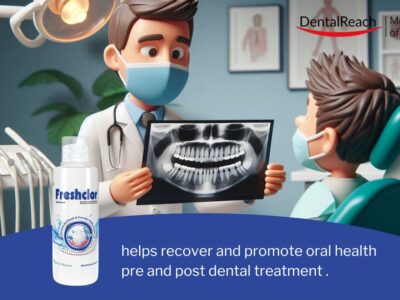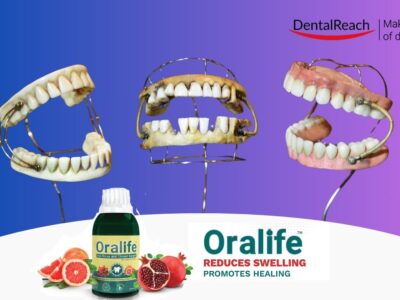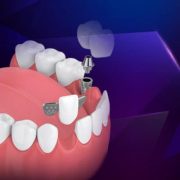We saw how dentistry differs around the world – and how it is also similar. In this article, we will analyse how dental professionals themselves are doing in different parts of the world: their demand, average salary and a brief migration plan if you wish to work in another country.
To know the demand of dentists in different countries, we must know how the levels of the main dental issue and solution – decayed, missing, filled teeth i.e the DMFT score in kids and adults. The global maps below have been provided by WHO. 1


Dentists in USA
Average Salary 2: $217,778 per year ie. 1,78,66,986 INR
Scope & Work : The US government regulates dental billings, so the people usually don't bargain and pay as per regulations. People have dental insurance, so they avail it and visit their dentist regularly, which keeps the cycle moving. Work-life balance is well maintained at clinics. Doctors don't usually work overtime. Dental therapists, like dental assistants and hygienists, are not permitted to practice independently. Some states are not as friendly to dentists as others due to complicated policies and high living costs.
From the business perspective, in the US (unlike UK &Europe), a dentist presents to the patient one bill that includes all of the treatment costs, such as the dentist, his assistant, tools, and labs. This allows the dentist to charge a single, easy-to-pay fee for individual procedures, and gives him an opportunity to mark up items and make a profit.
Migration plan 3:
- The DDS/DMD programs, usually for 2 years, is the only option for a foreign-trained dentist to obtain a practicing license in any state across USA. Students need to write the license exam – National Board Dental Examination (iNBDE) for this.
- One can pursue a specialty (MS) in Periodontics, Prosthodontics, Endodontics, Orofacial pain, Orthodontics, Pediatric Dentistry, and Oral and Maxillofacial Radiology. The program may be 2 – 3 years long. It is a continuation of a bachelor's program acquired in your home country and will be the direct specialization of a subject, hence saving time.
- Advanced Education in General Dentistry (AEGD) programs are usually conducted in a dental school, community health center, or military facility. The program duration is usually 12 – 24 months. They generally have no tuition fee, and the candidates are often paid a stipend. These programs are more competitive because of being less expensive.
- Some states like Massachusetts, allow a foreign dentist to take a full-time faculty position as a Faculty Dentist to practice within the dental school with a faculty license (under supervision). The limited license allows the international dentist to practice in a dental school, hospital, public health clinic, hospital, or prison. The license is valid for an year and may be renewed for up to five years. To extend the license beyond five years, the foreign-trained dentist has to pass the NERB (North East Regional Examining Board).
- Focusing on medical management, an advantage of the General Practice Residency (GPR) program is, that it is generally sponsored by either a hospital or a hospital-affiliated institution such as a dental school. This program is usually available for 12 or 24 months.
- The Advanced Clinical Training (ACT) Program is conducted at UCLA School of Dentistry in Los Angeles, California. The program is for two years, offering specialization in the field of Restorative Dentistry and Endodontics.
A limitation to all option is that these programs, except DDS/DMD, will allow you to practice only in certain states in the US.
Dentists in the UK
Average Salary 2: £79894 per year i.e 81,53,191 INR
Scope & Work: There is equal opportunity for dentists in the UK’s public (NHS) and private sectors. Plus, there has been an increasing public demand for cosmetic dentistry, which has contributed a lot to the growth of dentistry in the UK. Oral pathologists are paid the highest, followed by Prosthodontists and then Pediatric dentists 2. The cost of living however, is high.
Across much of UK & Europe, a dentist presents two bills to their patient – one for the dentist and another for the lab. This approach may stem from a cultural belief that profiting from healthcare is unethical and that healthcare should be available to consumers at actual cost; public dental clinics and subsidies ensures all citizens have access to dental care, regardless of ability to pay. In most cases, the government is both overseer and provider of dental care.
Migration Plan 4:
A registered dentist from Australia, Hongkong, Malaysia, New Zealand, Singapore and South Africa practice dentistry in the UK without writing any exams.
- The foreign-trained dentists not belonging to the above mentioned need to write the Overseas Registration Exam (ORE) to become a registered dentist in the UK. It is a 2-part exam. After passing ORE Part 2, registration with the General Dental Council (GDC) is compulsory.
- Dentists wanting to to work with the popular National Health Services (NHS) maybe required to undertake, in addition to the above, up to a year's Vocational Training equivalence training.
- The License in Dental Surgery (LDS) exam is conducted by the Faculty of Dental Sciences of the Royal College of Surgeons of England (RCS) and is a less common pathway. However, many countries accept the LDS as an equivalent exam for registration with their own dental councils.
Passing the LDS exam may thus serve as a ticket to practice in many other countries, without having to give the qualifying exams held in that country.
Dentists in Spain
Average Salary 2: € 85,684 per year i.e 77,16,272 INR per year
Scope & Work: The country has lower taxes and a lower cost of living. Coupled with the high returns, it becomes a win-win situation. When it comes to money, this is the best country to practice dentistry in.
Migration Plan 5:
- The Royal Decree 967/2014, of 21 November, regulates the approval of foreign qualifications to equivalent Spanish university titles that gives access to a regulated profession in Spain, as well as the validation of foreign higher education.
- In the case of a Degree in Dentistry, the approval process is always performed taking into account order CIN/2136/2008, of July 3, where the requirements for the verification of qualifications that enable the exercise of the dentist profession are outlined.
Dentists in Australia
Average Salary 2: $132,982 per year i.e. 1,09,08,779 INR
Scope & Work: The cost of tuition is low compared to other countries. Australian dental schools offer some of the lowest tuition rates in the world, making it accessible for students from all economic backgrounds. Dentists are highly respected. But dentistry is a highly competitive field: students need to be equipped with the best possible skills in order to compete and be consistent in academic acumen.
Migration Plan:
- To practice in Australia, dentists need to clear the equivalency exam (including written and practical assessments) by Australian Dental Council or ADC. It is a 3-part exam and considered to be the toughest of all licensure exams.
- After that, he/she needs to apply for license registration with Dental Board of Australia or DBA.
Clearing the ADC exam makes one eligible for working in New Zealand as well, under the Trans Tasman mutual recognition.
Dentists in Canada
Average Salary 2: $167,875 per year i.e 1,37,70,702 INR
Scope & Work: Dentists in this country are well compensated for their treatments and services, depending on location, because of public healthcare. Children and elderly are given free care in some provinces. A permanent residency (PR) is compulsory to get a dental licence. Labor laws are strict, and PR holders are eligible for the same rights and privileges as a Canadian citizen. The country provides free education to children and various health benefits.
Migration plan 6:
Canada recognises graduates from US, Australia, New Zealand & Ireland as accredited students. These students get a license to practice only after a certification by the National Dental Examining Board (NDEB).
- Graduates not belonging to these countries have 2 ways to get a license:
- The NDEB Equivalency exam process comprises three assessments. After successfully completing the NDEB Equivalency Process, students are eligible to go for the NDEB certification process
- Dental universities in Canada offer Accredited Qualifying or Degree Completion Program . These are custom-designed programs to make international graduates adapt to dentistry and dental practice in Canada. After completion of a Qualifying or Degree completion program, candidates are eligible to attend the NDEB Certification Process.
- Dental Specialty Equivalency process is for those dentists who have completed MDS/ post-graduation specialty in their home country. As an international specialist dentist in Canada, they need to write the Dental Specialty Core Knowledge Examination (DSCKE). However, it is extremely competitive and time consuming. So, most dentists with specialization also take the routes mentioned above.
Dentists in UAE
Average Salary 2: AED 10,962 per month i.e. 2,45,134 INR per month/29,41,608 INR per year
Scope & Work: Salaries are lucrative (and tax-free) and dentists enjoy a generous amount of paid leaves. Work consists of basic oral care as well as esthetic based treatments like tooth jewellery. The visa process is quite simple and hassle free. A cosmopolitan culture and a vibrant community ensure us that one's favorite cuisines are accessible.
Migration plan:
One can start practicing as soon as two months after clearing the respective licence exams, depending on location:
- (Dubai Health Authority) DHA exam for Dubai
- (Health Authority of Abu Dhabi) HAAD exam for Abu Dhabi and Al Ain
- (Ministry of Health) MOH exam for Sharjah
The work-experience requirement is mandatory: two years for general practitioners and three years for specialty-based practice.
These 6 countries – US,UK, Spain, Australia, Canada & UAE – have the highest demand for dentists with a lifestyle to match. Other countries like Switzerland, Ireland, Norway, New Zealand are also good options. Choose wisely – and be a global dentist!
References
1. Petersen PE, Baez RJ, Ogawa H. Global application of oral disease prevention and health promotion as measured 10 years after the 2007 World Health Assembly statement on oral health. Community Dent Oral Epidemiol. 2020 Aug;48(4):338-348
2. All average salaries from indeed.com/salaryexpert of the specific country where over 25k nationals reported their salary.
3.Official website of American Dental Association – https://www.ada.org/en/education-careers/dental-student-resources/career-options-after-dental-school/understanding-advanced-dental-education/program-options-and-descriptions
4.Official website of General Dental Council, UK – https://www.gdc-uk.org/registration/join-the-register/route-to-registration/recognised-overseas-qualifications
5. Offical website – https://eshaspain.org/work-as-a-dentist-in-spain/
6. Official website of NDEB Accreditation Programs, Canada – https://ndeb-bned.ca/en/accredited




















Comments